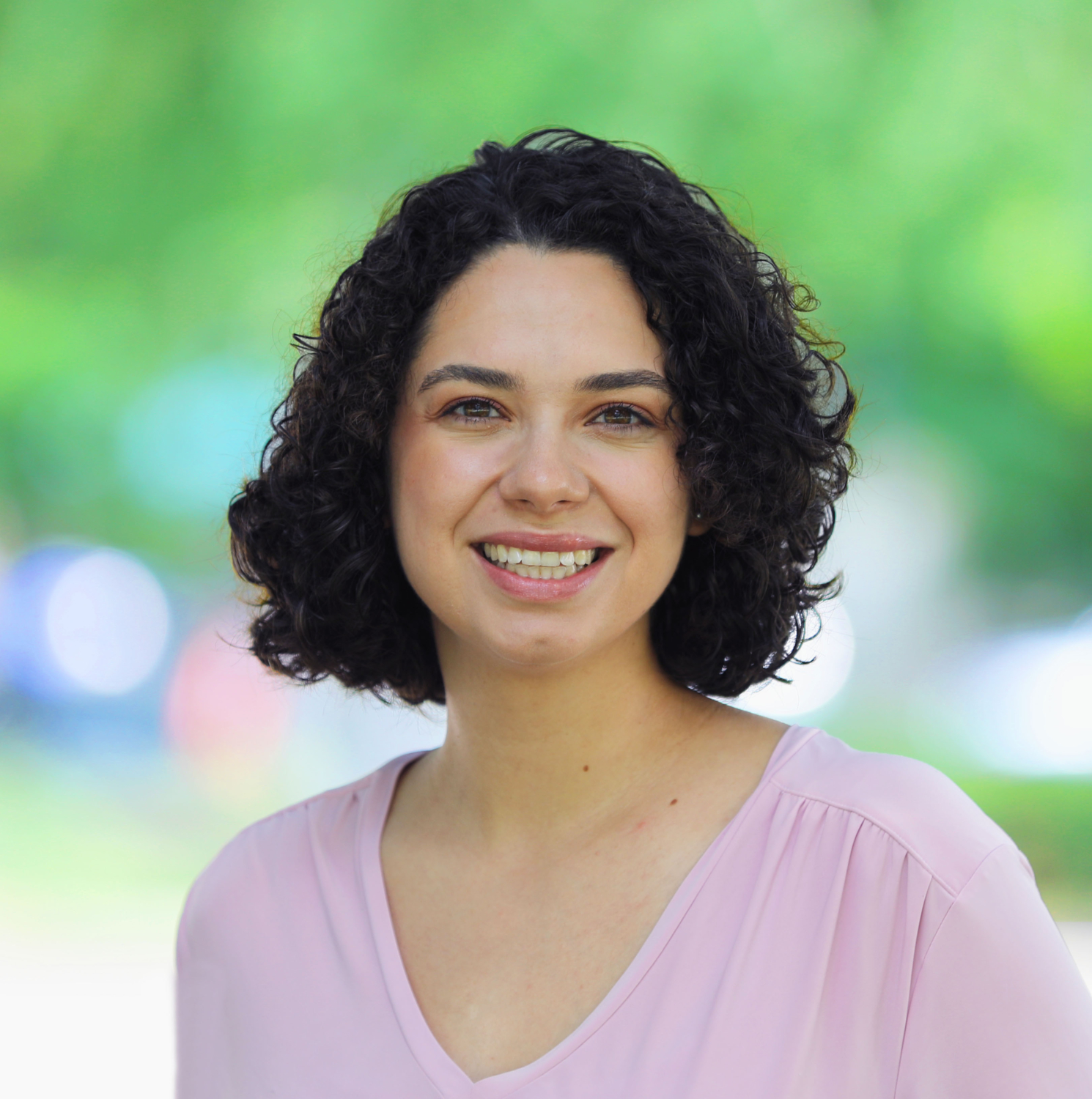From Student to Leader: Dr. Crossley’s Journey at The Piney Woods School
Editor’s Note: This is the second in a two-part series on The Piney Woods School. Read the first part here.
“Laurence Jones came to do this work at the height of the Jim Crow era of the Deep South when he was legally and practically prohibited from doing so. And he did it anyway,” said Dr. Will Crossley, President and Alumnus of The Piney Woods School, located in Piney Woods, Mississippi. “There was a fearlessness that he demonstrated in pursuing a dream that he had of empowering other people, of serving other people.”
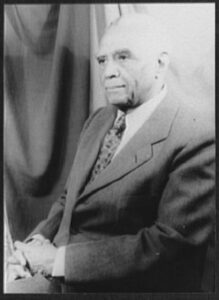
Dr. Laurence Jones. PC: Carl Van Vechten
From lynching parties to tornados, Piney Woods has a legacy of rebuilding and advancing in the face of adversity.
“This institution has now experienced six tornadoes, including one during my tenure. And each time, we would rebuild. That started way back with Laurence Jones when tornadoes would come and knock down the wooden barns that they had prepared for the food that they were harvesting. When the storm ended, they would rebuild.
“And so, his life, his story and the story of this institution is a national story of resilience and a personal story of resilience. It’s central. It’s central to who we are at Piney Woods. It’s central to who I am as an individual.”
The Significance of Laurence Jones’ Legacy for Piney Woods and Dr. Crossley
Born on the south side of Chicago, Dr. Crossley remembers understanding from a young age that he wasn’t growing up in the best educational environment.
“My family was struggling. My mom and dad had separated. My mom had four kids, including me. And we were living with my grandmother. We called her ‘Big Mama.’ But that could only last for so long until we had to move on and live with an aunt and then another aunt; homeless but for the love of family. So, we moved around a lot, and I changed schools at least eight times between first and seventh grade, sometimes mid-year,” Crossley said.
At 12 years old, it was a scholarship to Piney Woods that would drastically alter the trajectory of Dr. Crossley’s life. After completing his studies at Piney Woods, he was accepted as a student at the University of Chicago.
However, it didn’t sit right with Crossley that the opportunities he was afforded were different from those whom he grew up with.
“I’d grown up with my cousins. Some of them read faster than me; they were smart, and they were capable, but they didn’t have the same opportunity. From my first days in college I wondered, ‘Why does that disparity exist in our communities, in our society? Why doesn’t everyone get the kinds of opportunities that I had been blessed to receive?’
That disparity and unfairness drew Dr. Crossley’s attention to studying public policy at the University of Chicago and earning a Master’s Degree in Education at Harvard University. After teaching in both Chicago and Clayton County public schools (Atlanta, GA), he went on to work for the Governor of Georgia in education policy.
“As I got more into it, I discovered that the problems were not just in the educational system, but the problems were larger issues in our society. And that was what drove me to law school. I thought, ‘Why do we structure a society that has this result?’ And so, through that, I pursued a legal career which ultimately moved to a civil rights focus,” said Crossley.
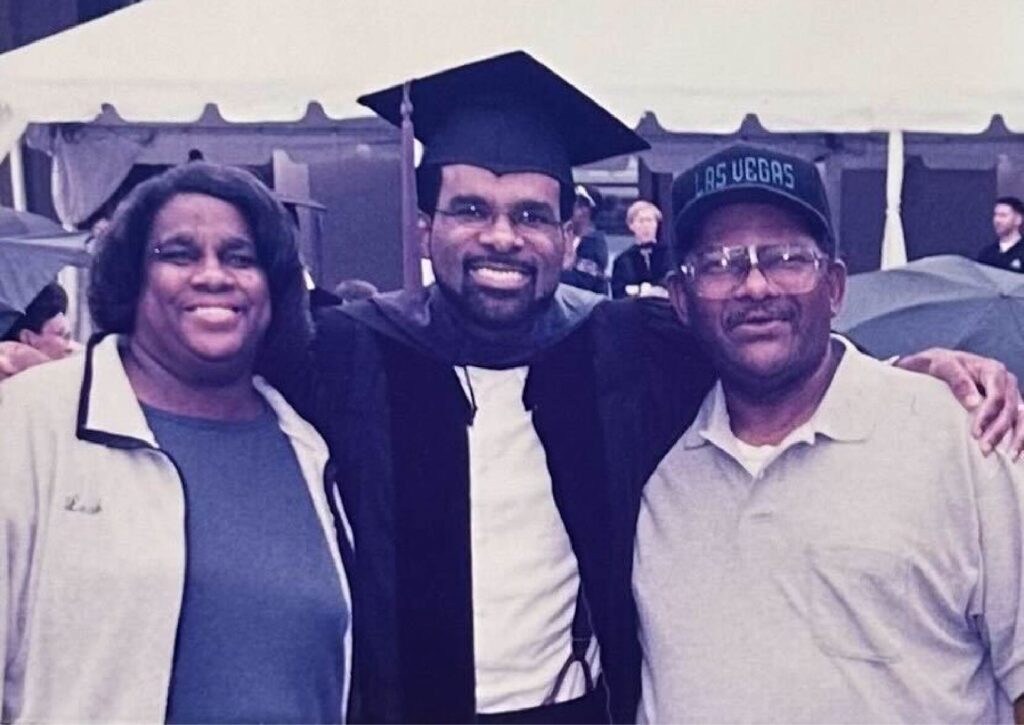
Dr. Will Crossley (center), President and Alumnus of The Piney Woods School, and his parents at Dr. Crossley’s University of Virginia Law School graduation.
Dr. Crossley continued his studies by attending the University of Virginia for law school and later to the practice of law in Washington, D.C. He had a successful legal career: he obtained clerkships for federal district and appellate judges; he worked for a large legal practice representing big household-name corporations; and pursued litigation on behalf of the President of the United States and represented members of Congress.
“I was chief counsel to the Democratic National Committee for four years under President Obama’s first term, where we took a voting rights case to the Supreme Court of The United States. Ultimately, I received a Presidential appointment to serve in his administration. Where I come from, people don’t imagine being appointed by the President to anything, much less work in their administration. But I was only able to do that because there was a Piney Woods in my life,” Crossley said.
During Dr. Crossley’s time in D.C., he was invited to serve on the board of The Piney Woods School. Shortly after, the president of the school announced his departure, and Piney Woods was stuck without a leader for a short period. Crossley accepted an interim presidency for five months before returning to D.C. However, the board invited him back for a full-time role as president.
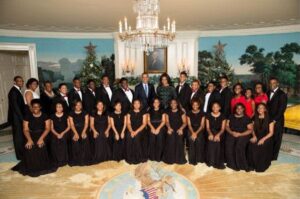
Dr. Crossley (second row, far right) posed with Piney Woods students, Former President Barack Obama and Former First Lady Michelle Obama at the White House.
“The way my family friend, Rev. Otis Moss put it, the transition from Washington, D.C. to rural Mississippi signaled a movement from transactional policy-based work to transformative people-based work. On the ground at Piney Woods, I could experience personally how lives were being changed.”
For Dr. Crossley, serving Piney Woods is more than a job or a career. It’s an investment into the very same institution that was pivotal to his own success.
“I owe this place, and the people who made this place possible, more than I can measure. So, every single day, that’s the kind of investment I try to make in our young people. And my hope my dream is that our work becomes a model; that young people everywhere will have people making that kind of investment in their future,” said Crossley.
Piney Woods and School Choice – How Piney Woods is Inspiring Change in the Education Landscape
“I think every child should have access to a high-quality educational opportunity, and the way education was built and remained structured in this country was not to do that. It was actually [built] to do the opposite of that.”
Dr. Crossley goes on to point out how the American educational system was designed to produce workers for companies like Westinghouse and General Motors, which was effective during the 20th century. However, this approach may not serve all students today.
“The systems weren’t created so that our children would become critical thinkers or that individualized, personalized learning was the hallmark for each student. Our young people ought to grow up in communities where they’re nurtured, supported, and challenged to their highest potential. For too many kids, our public schools don’t do that.”
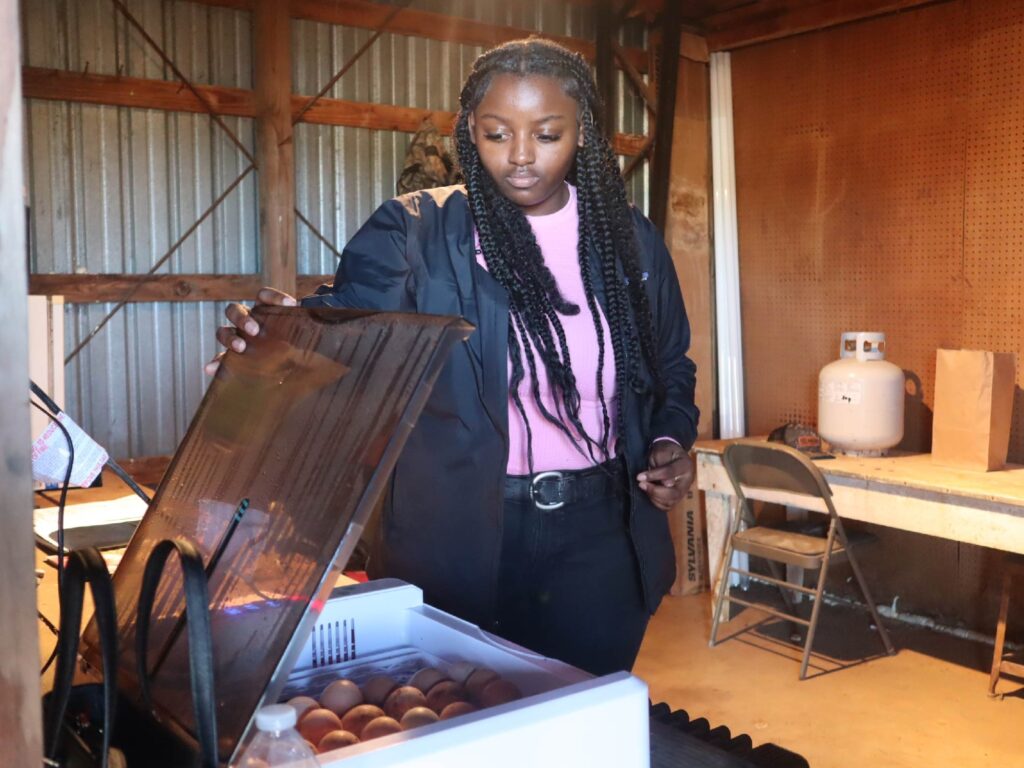
A Piney Woods student reviews eggs (hatchlings) on the Piney Woods School farm.
“The same reason why Piney Woods was created in 1909, that the public systems were not adequately serving our children, is the same reason we need to exist in 2024. The systems that exist do not adequately serve our children. And again, they weren’t created to. Ought we improve systems of public education? Of course! And we believe the work we do here at Piney Woods can provide a blueprint for doing so,” Crossley said.
Drawing inspiration from the Rosenwald schools’ legacy, Dr. Crossley articulated his vision for Piney Woods to become a beacon of educational excellence, inspiring similar initiatives nationwide.
“I’m currently working with community leaders and educators from rural Georgia, Philadelphia, and Los Angeles who are exploring how to take the values and principles that undergird the work at Piney Woods and replicate our success in their cities. It is going to look different in those places, but my hope is that what we learn here will spread, and that we become the model for how to achieve change in every community.”
Editor’s Note: The Piney Woods School is being featured in a documentary on Hulu launching February 2024.

Upcoming Hulu documentary Sacred Soil: The Piney Woods School Story


